Our Blog
Blog All Items Title
All Recent Articles

To Give or Not to Give: Longwood Fellows Examine Donation Trends for Arts and Culture Organizations
The Longwood Fellows program is fortunate to be situated within the thriving cultural community of the Greater Philadelphia area. The aphorism “a rising tide lifts all boats” is an apt metaphor for the support network that exists for the thousands of cultural organizations in the region.

Longwood Fellows Explore the Importance of Financial Endowments
As Longwood received the first snow dusting of the season, the Fellows departed for Morris Arboretum for our third salon in a series held at culturally significant locations. For this salon, we focused on the concept of how creating financial endowments can provide consistency and reliability on an often bumpy financial road. In short—how to fund impressive new projects and pay the electric bills.

Longwood Fellows Discover Importance of Boards at Jenkins
As Fellows, the Longwood Fellows Program helps us develop our leadership fluency and understanding of organizational management. As part of the program, we visit gardens with distinct missions that set them apart from others. Our most recent salon was hosted at Jenkins Arboretum & Gardens, which is nestled in the busy Main Line area of the Philadelphia metro region.

Longwood Fellows Engage in Leadership Salon at Winterthur
The Longwood Fellows Program curriculum includes salon-style discussions hosted by regional public garden and cultural arts leaders who have expertise in specific leadership-related areas. Winterthur Museum, Garden & Library was aptly selected to host the discussion of “How the Garden Fits into Institutional Mission.”

Leadership Gone Global
As nature is ever-evolving and multi-faceted, so is the operation of gardens themselves. As part of the Longwood Gardens Fellows Program, our Fellows spent two months at individual field placement sites across the globe to learn from thought leaders, as well as to share and grow their own expertise.

Community Read: A Conversation with Hope Jahren
We are proud to welcome Hope Jahren to Longwood Gardens on March 24, 2018, for Celebrating Women in Science and Horticulture, and for A Community Conversation. Recently we had the opportunity to ask the author some questions about her life as a scientist, and about writing her national bestseller, Lab Girl.
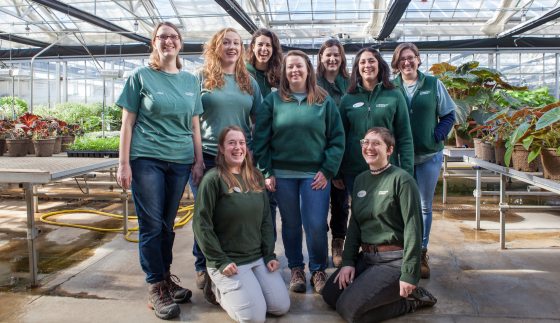
Celebrating Women in Science: A Community Read
Our 2018 Community Read, now in its fifth year, features three titles and a multitude of activities that celebrate female scientists: Lab Girl by Hope Jahren, Women in Science by Rachel Ignotofsky, and The Tree Lady by H. Joseph Hopkins. At Longwood, our dedicated staff, students, and volunteers—many of them women—work behind the scenes to bring you the beauty of our Gardens through the art and science of horticulture.
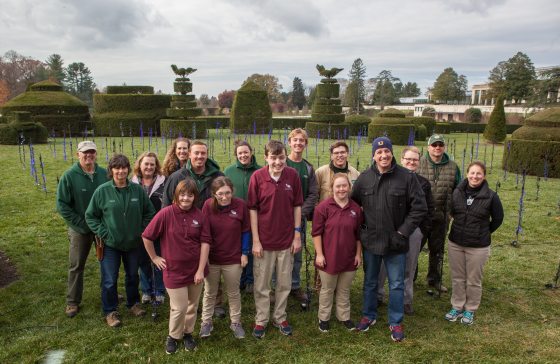
Students Discover Joy in a Job Well Done
“It’s heaven,” exclaimed Natalie Kramer when the twinkling white and blue lights began to dance for the first time in our Topiary Garden. Kramer is one of four students who have been working since September assisting Longwood Staff members on the building and installation of the Gardens’ newest holiday light display.
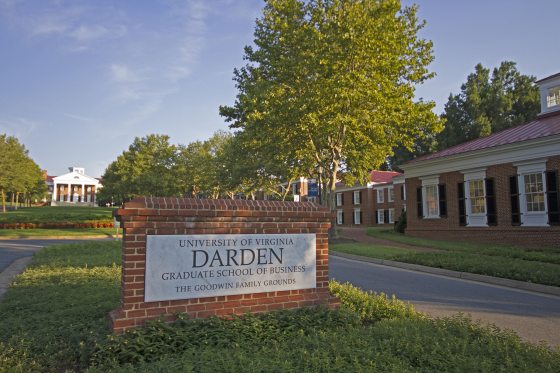
Longwood Fellows Dive into the Business of Public Gardens
Great public gardens must function as successful businesses to provide maximum impact and return on their mission. Leaders of nonprofit organizations focus on mission while also exercising fiscal discipline in order to meet their strategic objectives.

Bartram’s Garden Welcomes Longwood Fellows
In the early 1800s, at the country’s first botanic garden, Ann Bartram Carr welcomed boaters by serving them ice cream. Today, neighborhood kids ride Bartram’s Garden kayaks out to a raft on the Schuylkill River where they, too, are greeted with free ice cream. Such is the spirit of welcome that we, the Longwood Fellows, were greeted with during our recent visit to Bartram’s Garden.

Longwood Fellows Engage in Leadership Salon
On July 27, the inaugural cohort of Longwood Fellows traveled to Drexel University in Philadelphia, Pennsylvania, for the first in a series of Leadership Salons that will expose the Fellows to thought leaders in public horticulture and beyond and to the challenging topics they face in the nonprofit sector. This first salon, led by Danielle Rice, Ph.D., Director of Museum Leadership at Drexel University’s Antoinette Westphal College of Media Arts and Design, focused on the history of urban public spaces—an appropriate place to begin.

Follow the Fellows
“Leadership” can be an amorphous term. Most agree that it is an important quality to possess these days, from scholars to the average person on the street, but how is the term defined and what does it mean to study leadership in 2017? Beginning with this post, the Longwood Gardens Fellows invite you to “Follow the Fellows” as they define the term for themselves and actively seek to develop their leadership skills and personal brands.

The Way Things Work Now: A Community Read
What does our 2017 Community Read selection, The Way Things Work Now, have in common with our Main Fountain Garden? Both are works of art and engineering that engage the imagination. Both were created by masters of their fields—David Macaulay is an award-winning author whose words and drawings help us imagine how technology works, while Pierre S. du Pont was a visionary business leader whose love of fountains placed that technology on spectacular display. It’s one thing to stand in awe of such technological wonders—and quite another thing to wonder, and to seek to understand. That’s what David Macaulay and this year’s Community Read do so well—they make us wonder not only about things that inspire awe, but also about things we might otherwise take for granted.

Growing Together at the Annual Longwood Graduate Program Symposium
On Friday, March 3, the Longwood Graduate Students presented their annual symposium entitled “Growing Together: Cultivating Change in the Economic Landscape.” The daylong educational experience sought to engage attendees in big picture thinking. From how the public horticulture industry uses vacant city lots for urban farming to the way public gardens can advocate for their mission while leveraging current events and politics, the riveting speakers and crowd discussions left no mind untilled.
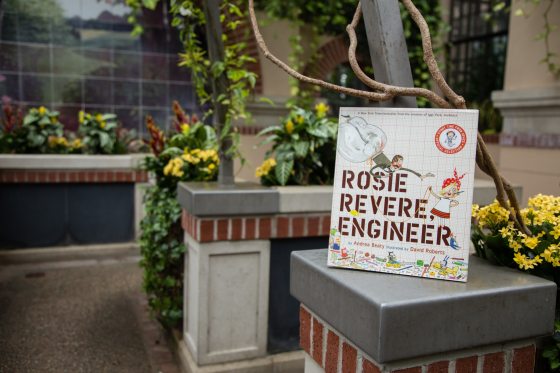
Reading in Community
Have you ever wondered how your smartphone works? How about a telescope? Or helium pants? This year, the Longwood Gardens Community Read invites you to explore the wonders of science, technology, and engineering that shape our world. Pick up this year’s titles—The Way Things Work Now by David Macaulay, and Rosie Revere, Engineer by Andrea Beaty—to find fun and fascinating answers to these questions, and the inspiration to ask many more.

Horticulture in Any Language
Longwood Gardens is known not only for its leadership in horticulture, but also for its excellence in education—both at home and abroad. Among its many outstanding programs is Longwood’s International Training Program, which was founded in 1956 with Aage Anderson of Denmark as its first participant. This year there are international trainees and interns from Poland, Spain, South Korea and the UK. The program allows each individual to focus on key areas of interest and to broaden their learning experience by rotating through different areas of the Gardens, including outdoor display, indoor display, natural lands, production, education, marketing, plant records, and research. Participants live with American interns, Professional Gardener (PG) students, and Great Gardens of the World TRIAD fellows on Red Lion Row, which is just a short walk from the Gardens. “The Row” was originally built by Longwood’s founder, Pierre S. du Pont, to house employees and their families. Nowadays 20 to 40 students live on “The Row” at one time, which leads to a unique and highly sociable international community, sometimes known as plant camp!
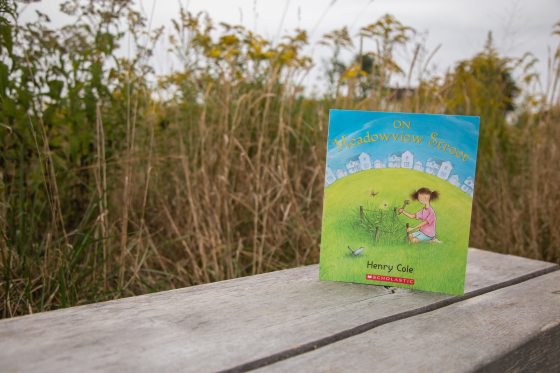
On Meadowview Street: A Family Community Read
What if you visited Longwood Gardens and it didn’t have any gardens? What if you moved to Meadowview Street and it didn’t have any meadows? That very question got author/illustrator Henry Cole thinking. And so he created the story of a young girl named Caroline, who grows her own meadow in our 2016 Family Community Read selection, On Meadowview Street. “Isn’t it ironic to see street signs everywhere with names like ‘Cardinal Way’ or ‘Fern Street’—and there are no cardinals or ferns anywhere near!” says Cole in a recent email interview with Longwood. “Places are called things to make them sound inviting and beautiful but it is seldom that communities are planned (and planted) with the environment first and foremost.”

Grandma Gatewood’s Walk: A Community Read
One person. One step. That is how some of the most wondrous journeys—and stories—begin. The inspirational power of one is the theme of Longwood’s third annual Community Read, an event that moves us to pick up our feet as we journey along with this year’s book—Grandma Gatewood’s Walk: The Inspiring Story of the Woman Who Saved the Appalachian Trail—by Pulitzer Prize finalist Ben Montgomery.

Picturing the Past: A Gift from Eugene L. DiOrio
The Longwood Gardens Library & Archives recently received a generous gift from longtime guest, local historian, and avid travel photographer, Eugene L. DiOrio. Since May 2013, Mr. DiOrio has presented 1,073 black-and-white negatives, 11,652 color slides, and approximately 3 boxes of brochures, pamphlets, and maps to Longwood. The collection covers Gene’s local, regional, and European travels, with a focus on historic architecture, estates, and gardens; it will comprise approximately 40,000 black-and-white negatives and 40,000 color slides when complete.

Graduate Fellows’ Australian Travelogue
The Longwood Graduate Program Fellows have nearly finished our time in Australia. We visited eleven different sites including botanic gardens, a national park, and a zoo. Each location has filled a different niche and given us a unique experience. Our goal for this trip was to learn how Australian gardens are evaluating the success and social impact of their site and programs. As an element of that goal we have also been investigating community engagement strategies. Evaluating social impact is a challenging task, in fact simply agreeing on definitions can be a challenge. Assessing social impact, or return on mission, is something we are currently working on as part of the next 5-year strategic plan here at Longwood Gardens.